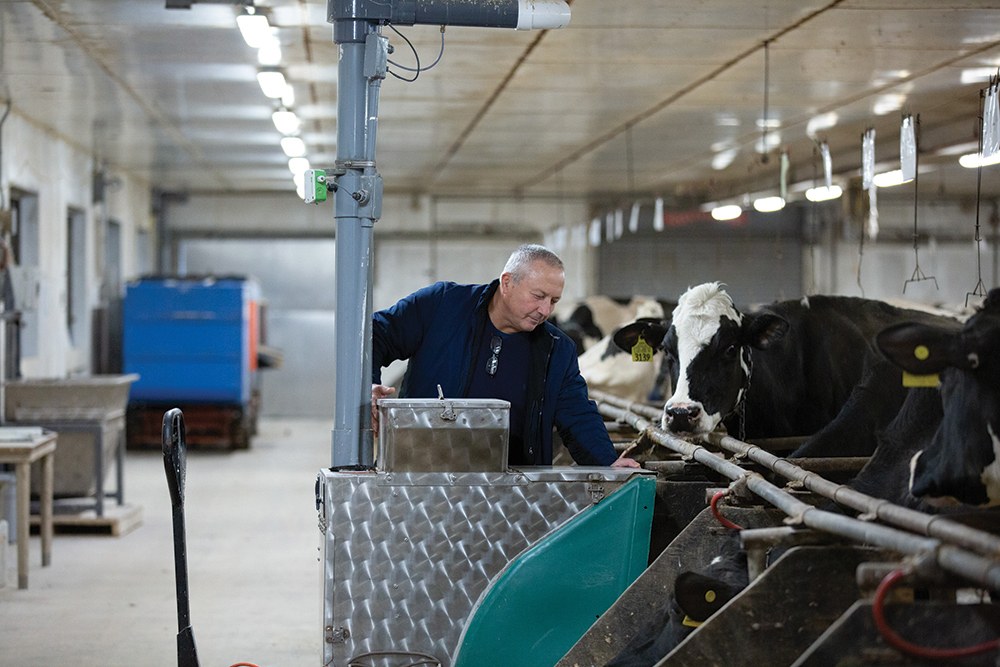Posted: March 30, 2023
Existing feeding strategies can help meet global agricultural methane targets by 2030.

Alexander Hristov, distinguished professor of dairy nutrition, in a Penn State tie-stall barn logging data in a previous study. He played a key role in initiating the just-published, international, methane-from-livestock research. Photo: Michael Houtz
To better guard against the future impacts of climate change, farmers will need to consistently apply existing mitigation strategies, according to a new international study, rooted in Penn State's College of Agricultural Sciences. The research found that, diligently applied, those animal-feeding tactics could enable the world to meet the target set for reducing agricultural methane emissions by 2030.
The work was initiated by Alexander Hristov, a distinguished professor of dairy nutrition, in 2015 when he was the chair of the Feed and Nutrition Network of the 35-country Global Research Alliance on Agricultural Greenhouse Gases.
In the meta-analysis, published in the Proceedings of the National Academy of Sciences, a group of experts in livestock emissions from around the world reviewed hundreds of peer-reviewed studies for strategies designed to decrease enteric methane emissions while maintaining or increasing animal productivity. Strategies include increasing feed intake level, having ruminants graze on less mature grass, and feeding increasing levels of concentrated methane inhibitors such as oils and fats, oilseeds or nitrate, as well as feeding tanniferous forages.
The researchers found that the world could meet the targets for 2030 set by the 2015 Paris climate agreement but would require concerted action to identify and remove adoption barriers and implement the strategies. Under the 2015 Paris agreement, methane from agriculture must be reduced by 11% to 30% by 2030, if the world is to limit global warming to 2.7 degrees Fahrenheit.
Methane is a byproduct of microbes in the digestive tract of ruminants decomposing feed, a process called enteric fermentation. The world's billion or so ruminants -- cattle, sheep and goats mostly -- then belch out the methane, contributing 5% of total greenhouse gas emissions created by human activities.
--Jeff Mulhollem
Features
Breaking the Silence on Farm Stress
Farming has always been a demanding profession, but today's farmers face unprecedented pressures that can severely impact their mental health.
Biting Back
Research Targets Vector-Borne Diseases to Save Lives
Leading Forward
Ott brings deep connection to role of dean.


